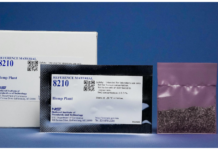The United States cannabis industry is poised to grow exponentially. Many states have approved or decriminalized medical cannabis use; several have legalized recreational use. Only a few states have been legislatively silent about public use of cannabis. It is likely some of these holdout states soon will further decriminalize cannabis.
As a result, investment in cultivation and processing facilities has mushroomed. In some respects, the industry resembles a gold rush. Fledgling and mature companies and entrepreneurial individuals are aggressively staking claims on new cannabis-related products and businesses. As in other evolving industries, entrepreneurs would be wise to consider how to protect their market position as a part of prudent due diligence.
Imagine you seek or your backers have invested money in a cannabis-related endeavor. In an ideal world, identifying what will make your product or service unique, protecting that point(s) of uniqueness, and creating a barrier to block or discourage incursion or copying by your competitors would be easy. To those ends, your intellectual property (IP) rights may play a significant role. Such strategies resemble the way IP rights protect investments in other, more established industries.
Start-up cannabis entities can benefit from the experience of companies in other emerging business spaces. Such experience has shown IP protection must be incorporated in a new business’s planning and due-diligence activity to secure a foothold and maximize protection. Some, but not all, aspects of a successful business can be protected by existing IP law. If they choose, many cannabis-based entrepreneurs can build a portfolio of IP rights to protect their proprietary information, innovation, and trademarks while warding off the competition.
Several options for protecting IP exist: patents, trademarks, and trade secrets. Selecting a prudent mix of IP protection requires keen attention be focused on the advantages and limitations of each form.
Patents
U.S. patents are granted by the federal government. They give an owner the right to exclude others from making, using, offering for sale, selling, or importing the subject matter covered by the patent claims. Inventors seeking a patent must file an application with the U.S. Patent and Trademark Office (USPTO). An examiner reviews the application and allows a patent if the claimed invention meets numerous requirements for patentability. Requirements include novelty, non-obviousness, utility, and subject matter eligibility. To satisfy the novelty requirement, be sure to file a patent application within a grace period: one year of first use or sale or offer for sale. For international patents, a U.S. application must precede the first use, sale, or offer for sale; there is no grace period.
When the patent issues, the inventors or owners get a right to enforce the patent to prevent infringing activities in the U.S. for twenty years, measured from the application filing date. Enforcement may include stopping or discouraging the competition or licensing the patent. This means licensees must pay you for the privilege of using your technology.
Three types of patents are available in the U.S.
- Utility patents (provisional and non-provisional) protect machines, what they make, chemicals, pharmaceuticals, and other compositions of matter and processes.
- Plant patents protect new varieties of asexually-reproduced plants (e.g., by grafting, layering, and micropropagation).
- Design patents cover the aesthetic appearance of an article.
Utility and plant patents potentially are relevant to cannabis-related businesses.
More than 3,000 utility patents have issued in the U.S. covering various aspects and types of cannabis products and related technologies. For example, the USPTO has granted patents on cannabis varieties for which the developers alleged medical or pharmaceutical uses, such as effectiveness against certain diseases or health problems. Other patents have issued in technologies incidental to the cannabis plant itself that may have more general horticultural uses. These include, for example, processing techniques, growing media, system-controlled greenhouses, and growing environments and lighting.
Some cannabis-related inventions or strains may be protected by plant patents. Protection under plant patents could extend to new cannabis variants or hybrids. One downside of plant patent protection, however, is the claims of plant patents are limited to the specific plant variety described in the patent. Such patents do not have the potentially broad scope of utility patents. But narrow protection can be valuable and used to deter or stop a competitor from cloning your plant variety.
Before committing a significant investment of time or money, prudent due diligence includes investigating whether the manufacture, use, or sales activity may infringe the valid patent rights of others. A sophisticated investor is likely to ask such a question. They may ask for the written opinion you received from your intellectual property attorney, so be prepared.
Trademarks
You should do what you can to protect your brand name or mark, which may be protected under state and federal law. In general, trademark law protects the owner of a mark from unfair competition by third-party deliberate or innocent use of confusingly similar marks or services, including logos, brand names, and product configurations.
Trademark protection can be offered under state trademark law or by the federal Lanham Act. State law may provide local protection from confusingly similar use of a mark in the same geographic market. Federal registration provides nationwide protection and may be available if the trademark is used in interstate commerce (i.e., not solely within a state).
Cannabis use is still illegal at the federal level, so the USPTO has taken the position trademarks associated with cannabis products and services cannot be registered since they cannot legally be used in interstate commerce, even if the intrastate sale of cannabis is lawful in the state(s) where the trademark is being used.
Several strategies nevertheless may be available for cannabis-based businesses seeking trademark protection. First, applications for trademark registration should not identify cannabis or products directly related to cannabis products or services, such as drug paraphernalia. But the application may identify ancillary products that are not themselves illegal, such as branded clothing or a website. The name of a growing medium may be registered, even though one use is cannabis cultivation. Second, marks should not include the words “cannabis,” “marijuana,” or “weed,” or depict a cannabis leaf or other parts of the plant. Third, although federal registration is not currently available, companies may take advantage of state trademark protection. This includes, in some states, a registration system for marks and trade names. Since most state statutes preclude cross-border sales or distribution of cannabis, state trademark protection may be particularly useful in protecting marks that are used within a single state.
The 2018 farm bill permits the production and marketing of hemp that has no or minimal tetrahydrocannabinol (THC) levels (i.e., less than 0.3 percent). This removes the basis for rejecting trademark registrations for marks used in connection with hemp and hemp-related products. If all other requirements for registrability are met, the USPTO should permit registration of trademarks used with hemp-based products and services, particularly if the trademark application is carefully crafted.
Trade secrets
Trade secret protection may be available under state law and may be enforced in federal and state courts. A broad range of proprietary information can be protected, including recipes, processes, and know-how, plus customer lists and sales information. Trade secret protection may be appropriate when proprietary information, not generally known to the public, confers an economic advantage on the user and is the subject of reasonable safeguards to protect the confidentiality of the information.
Various aspects of cannabis-related businesses may be protected as trade secrets. These include, for example, growing techniques, methods for processing products, the composition of media or nutrients administered during cultivation, business plans, and sales forecasts. To gain protection, an entrepreneur should memorialize the trade secret information and implement reasonable safeguards to maintain secrecy, such as a practice of using non-disclosure agreements and visitor logs, password-protecting sensitive files, etc.
Conclusion
The cannabis industry is a dynamic and rapidly growing segment of the economy. A legal landscape facing emerging entrepreneurs continues to evolve as the USPTO and courts consider the IP limits of cannabis-related technologies. Nevertheless, existing IP laws provide an opportunity for entrepreneurs to create a portfolio of IP rights that may protect their enterprises from competition.
Potential acquirers may put significant value on an IP portfolio. Such an asset could make your business attractive to a buyer, who may be interested in acquiring or licensing the fruits of your labors.
As in many endeavors, the sin of omission exceeds the sin of commission. Smart, informed choices mandate doing your homework. Seek advice from IP counsel at an early stage and throughout your entrepreneurial activity.

For more than thirty-five years, William Abbatt’s practice has focused on all aspects of domestic and foreign patent preparation, prosecution, and assertion, including dispute resolution. He regularly counsels clients on the development and management of patent portfolios, including how to protect inventions and monetize them by sale and licensing.










[…] the cannabis industry continues to mature, companies are investing more resources into protecting the closely guarded trade secrets that will play an increasingly important role going forward. As companies look to get a leg up on […]